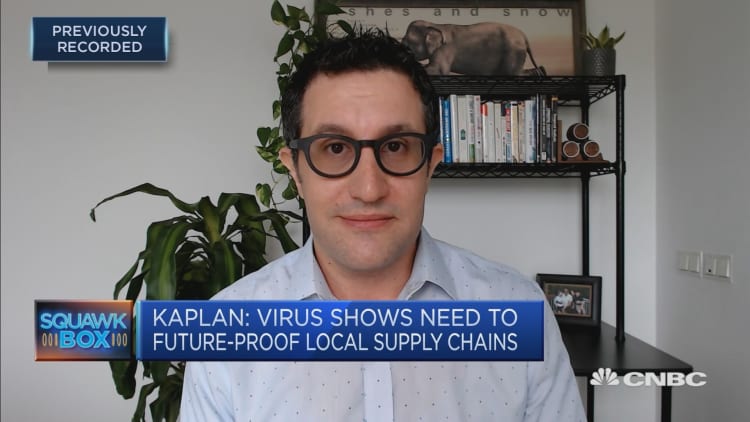As the world grapples with climate change and an economic downturn, new research from the World Resources Institute suggests that sustainable ocean-based investments will yield benefits at least five times greater than the costs.
Over the next 30 years, investing $2 trillion to $3.7 trillion globally across several sustainable ocean-based policy interventions would generate a net benefit of $8.2 trillion to $22.8 trillion, according to the report commissioned by the High Level Panel for Sustainable Ocean Economy, a project of 14 world leaders and the United Nations secretary-general's special envoy for the ocean.
The research focuses on investments in four main areas: increasing the production of sustainable protein from the ocean, maintaining mangrove habitats, increasing offshore wind production and decarbonizing international shipping.
"When we think about the ocean, we think about the impact of climate change on ecosystems and marine habitats. We think about overfishing [and] ocean pollution," said Manaswita Konar, lead ocean economist in WRI's Sustainable Ocean Initiative and a co-author of the report.
"But we rarely think about the ocean's ability to address these challenges and bring about prosperity to the economy," she said.
Ocean-related industries like offshore wind energy, fishing and shipping comprise roughly 3.5% to 7% of global gross domestic product, a value expected to double by 2030, according to estimates from the WRI. However, the coronavirus pandemic has severely impacted jobs and output from those sectors, and climate change, overfishing and pollution are destroying the ocean's ability to sustain those sectors.
"We need to stop thinking about the ocean as just a victim of climate change and start talking more about how ocean-based solutions can help achieve economic recovery post-Covid and build economic resilience into the system," Konar said.
One solution researchers suggest is investing in ocean-based food production by improving fisheries and the production of ocean aquaculture.
As the global population grows, investing in wild fisheries would help provide healthy diets for people over the next 30 years while replacing carbon emission-intensive land-based proteins like beef and lamb, researchers contended. Every $1 invested in increasing production of sustainably sourced ocean-based protein is estimated to generate $10 in benefits, the report said.
Another solution is investing in mangroves, which are swamp ecosystems typically located in the tropics that connect freshwater and oceanic ecosystems and protect people from sea level rise, hurricanes and flooding. Every $1 invested in mangrove conservation and restoration is estimated to yield a benefit of $3, according to the report.
"It is important to protect mangroves as early as possible — early investment is important — to avoid high costs in the future," said Helen Ding, an environmental economist at the WRI's Economics Center and a co-author of the report.
Offshore wind farms, which are continuing to expand across the world, are part of a major push to get electricity primarily from renewable sources.
While offshore farms generally cost a lot more than power from turbines on land, excitement over offshore wind projects has grown amid climate change fears and advancements in technology have helped lower costs.
Researchers contend that every $1 invested in scaling up global offshore wind production generates a benefit estimated at $2 to $17, depending on the varying cost of production. But the value of the return on investment will likely increase as costs for offshore wind energy generate fall due to improved technology.
Another challenge in the energy sector is international shipping, a major carbon dioxide emitter. The industry accounts for roughly 2.5% of global greenhouse gas emissions, and the total cost to decarbonize the sector has been estimated at $1.65 trillion by 2050.
Researchers say that every $1 invested in decarbonizing global shipping and reducing carbon emissions to net zero is estimated to generate a return of $2 to $5.
"The returns are going to be significant in terms of the health benefits we'll get from reducing greenhouse gases," Konar said of decarbonzing the shipping industry. "These benefits will prolong beyond 2050."
Across all the investment areas, researchers estimated the value of benefits with assessments like health, environmental and ecological, water usage and economic and social factors. The categories of costs included assessments like costs to businesses, government and households.
"We are going through a financial crisis post-Covid, so there will be questions raised about the financial implications of these investments," Konar said.
"But we have sustainable development goals and commitments that we need to achieve, and all these interventions will help us achieve those," she added. "We are preparing for challenges that the world will face in the future."



